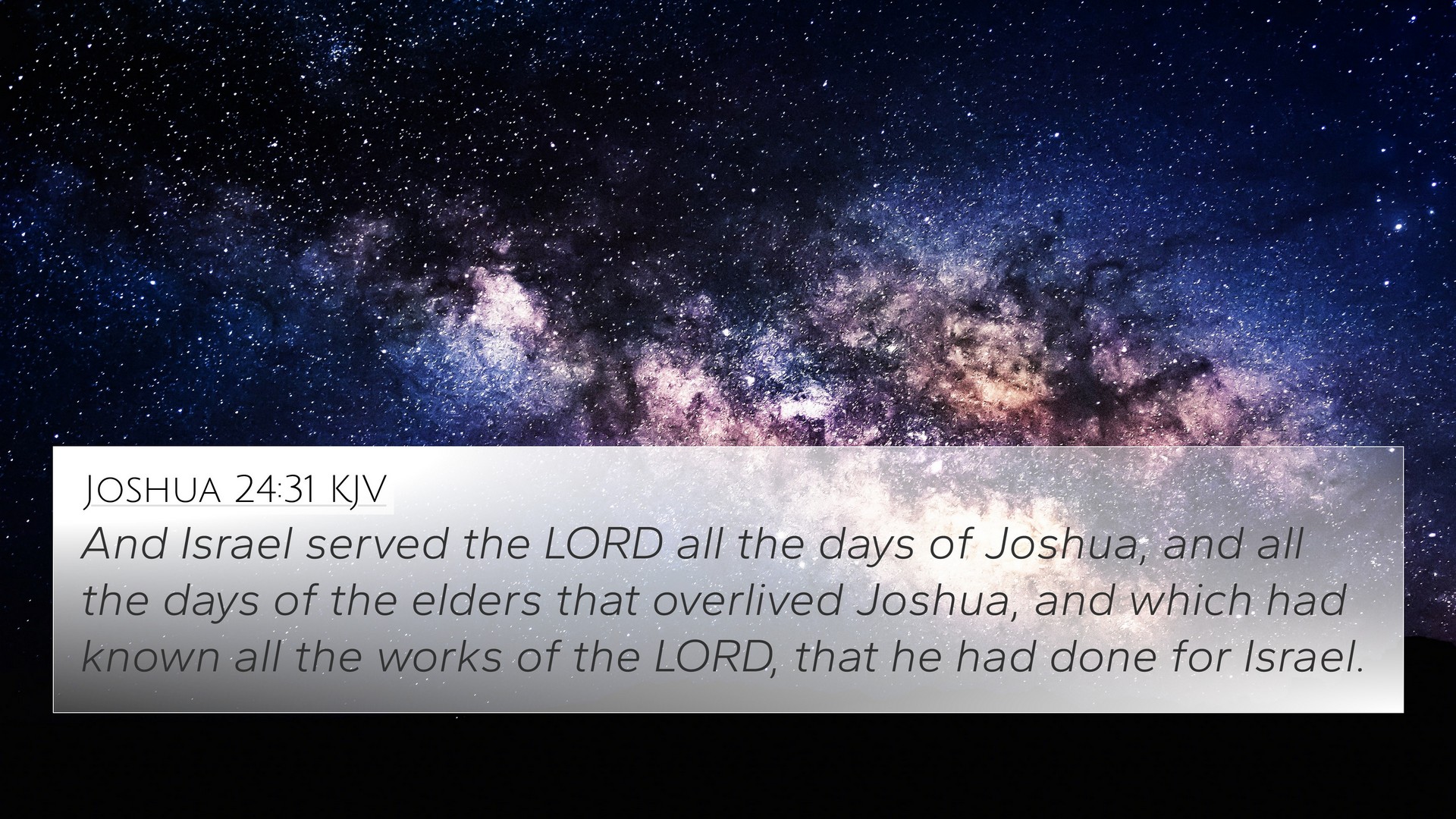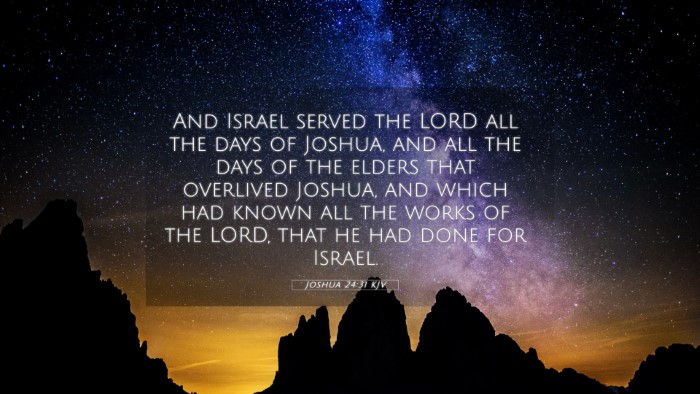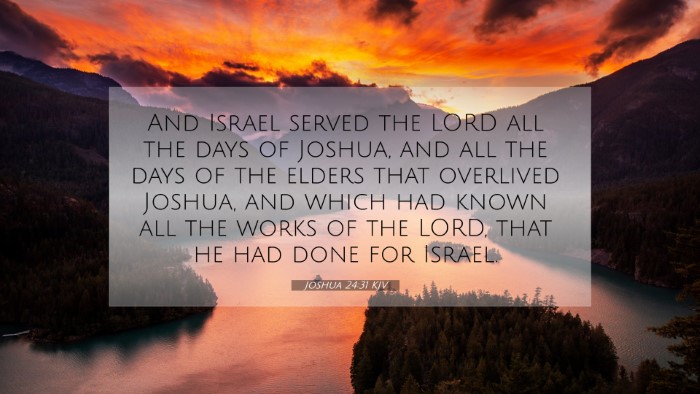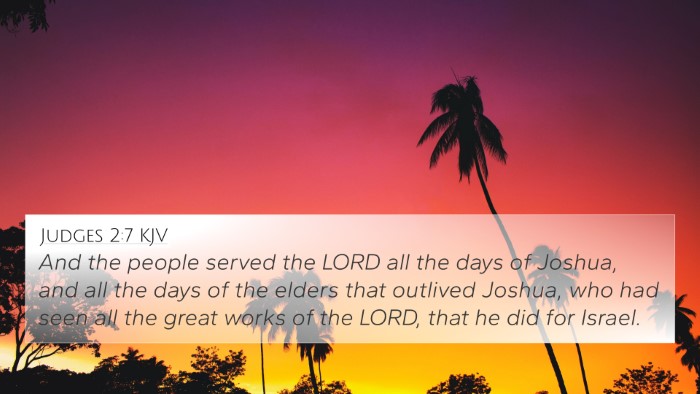Bible Verse Meaning: Joshua 24:31
Verse: "And Israel served the LORD all the days of Joshua, and all the days of the elders that overlived Joshua, and which had known all the works of the LORD, that he had done for Israel." (Joshua 24:31)
Summary of Interpretation
This verse captures a significant period in Israel’s history, highlighting the faithfulness of the people in serving the LORD during and after the leadership of Joshua. It reflects on the generational impact of leadership in keeping the community devoted to God. The enduring faith of Israel is contingent upon their memory of God's deeds and the influence of faithful elders.
Insights from Commentators
-
Matthew Henry: He emphasizes the importance of spiritual legacy and the power of remembrance. The faithful service of Joshua was pivotal in shaping the subsequent generation's devotion to God, who had performed significant works for them.
-
Albert Barnes: Barnes discusses the communal aspect of Israel's faith, noting that it was not only Joshua but also the elders who collectively contributed to maintaining Israel's relationship with God. He highlights the communal memory as a critical factor in sustaining faith.
-
Adam Clarke: Clarke focuses on the historical context, pointing out that this faithfulness was crucial for Israel's identity as a nation chosen by God. He stresses the necessity of remembering God's miracles as a foundation for ongoing faith.
Key Themes
- The Importance of Leadership: The influence of Joshua and the elders was invaluable in instilling a culture of worship and reverence towards God.
- Remembering God’s Works: The verse underscores the critical nature of recalling God’s past actions as a means to encourage faith and obedience.
- Generational Faithfulness: The scripture illustrates how faith can pass from one generation to another through teaching and collective memory.
Cross-References
This verse has several connections that can deepen understanding through bible verse cross-references. Here are some related scriptures:
Exodus 12:26-27: Highlights the importance of teaching future generations about God’s deliverance.
Psalms 78:4-6: Emphasizes the role of storytelling in passing down God’s deeds to the next generation.
Judges 2:7: Discusses the faithfulness of the people during the leadership of Joshua and the elders.
Deuteronomy 6:7: Commands the people to teach their children the commandments of God.
Hebrews 3:16-19: Warns against disbelief that can prevent entry into God's rest, emphasizing the importance of faith across generations.
1 Peter 2:9: Discusses the role of believers as a chosen people, emphasizing the continuity of God's work through history.
John 14:15: Jesus mentions obedience as a sign of love, connecting to the service rendered by Israel in Joshua's time.
Thematic Connections
There are strong connections between bible verses in understanding the themes of obedience and remembrance. This verse serves as a reminder of how leadership and collective memory facilitate continuity in faith. Tools for bible cross-referencing can further aid in studying these themes across the texts.
In exploring cross-referencing biblical texts, one can identify how obedience, leadership, and generational faith are echoed throughout scriptures, weaving a cohesive narrative of God’s interaction with humankind.
Conclusion
Joshua 24:31 stands as a testament to the profound impact of leadership and collective memory in faith. By utilizing tools such as a bible concordance or a bible cross-reference guide, readers can explore the depths of this verse and its implications for understanding faith within a community. As we engage in cross-referencing Bible study, we recognize the patterns and themes that speak of God’s enduring nature and the call to remember His mighty works.











